In West Oakland’s Hoover-Foster neighborhood, historic oppression, redlining, and a lack of publicly available green spaces have greatly affected its residents. Simultaneously, this specific area lacks fresh food options, including lots of spaces with ground fuel cites and contaminants. To counter this legacy of marginalization and environmental injustice, Sow and Grow Commons proposes the use of allotment gardens to transfer land back to the community, using it as a vehicle to build community empowerment and resilience. This approach expands the traditional role of the library to be both a space of information & knowledge but also access to land.
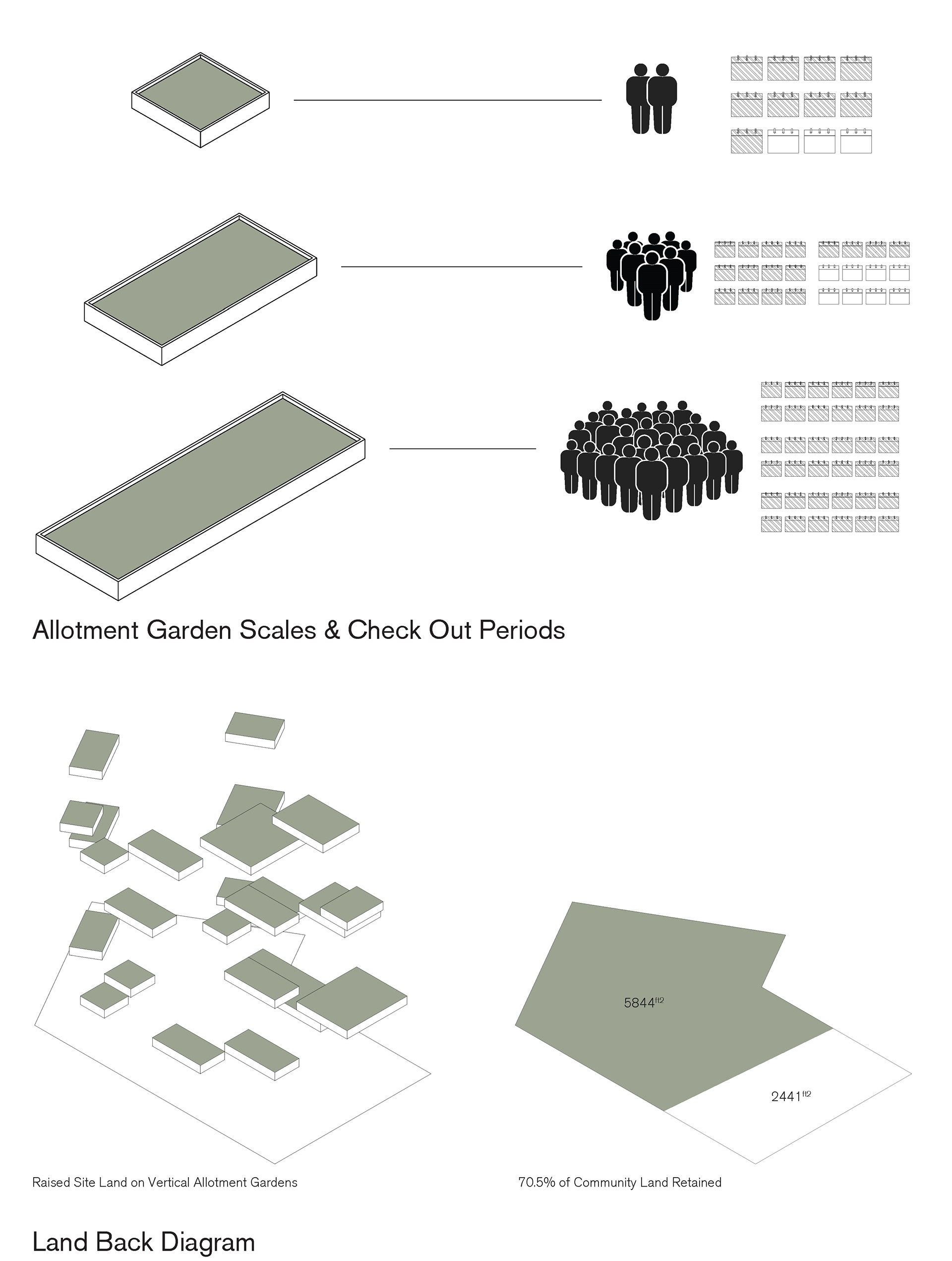
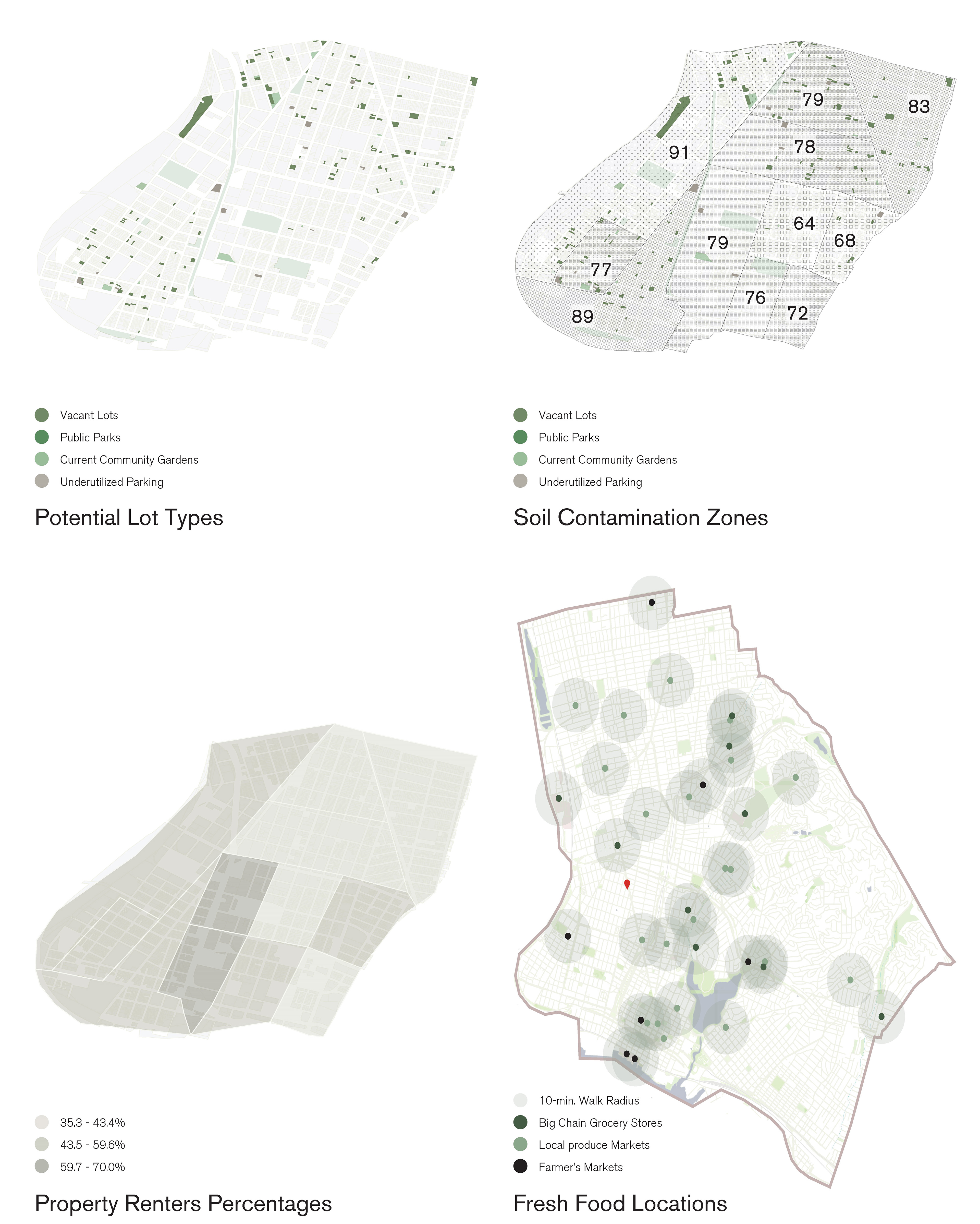
The use of allotment gardens first emerged in the 19th century as spaces for urban dwellers to cultivate food during industrialization. Initially to address poverty and provide green spaces, these gardens have evolved into communal plots for growing fruits, vegetables, and fostering community connections within cities worldwide, such as Toronto, the UK, and Singapore. Sow and Grow Commons provides 25 allotment gardens of various sizes. Catering to a diverse group of users, including students, single families, and multiple households, 9-36 month check-out cycles allows for a flexible range of activities, from classes to home vegetable gardening, herb cultivation, and growing wildflowers.
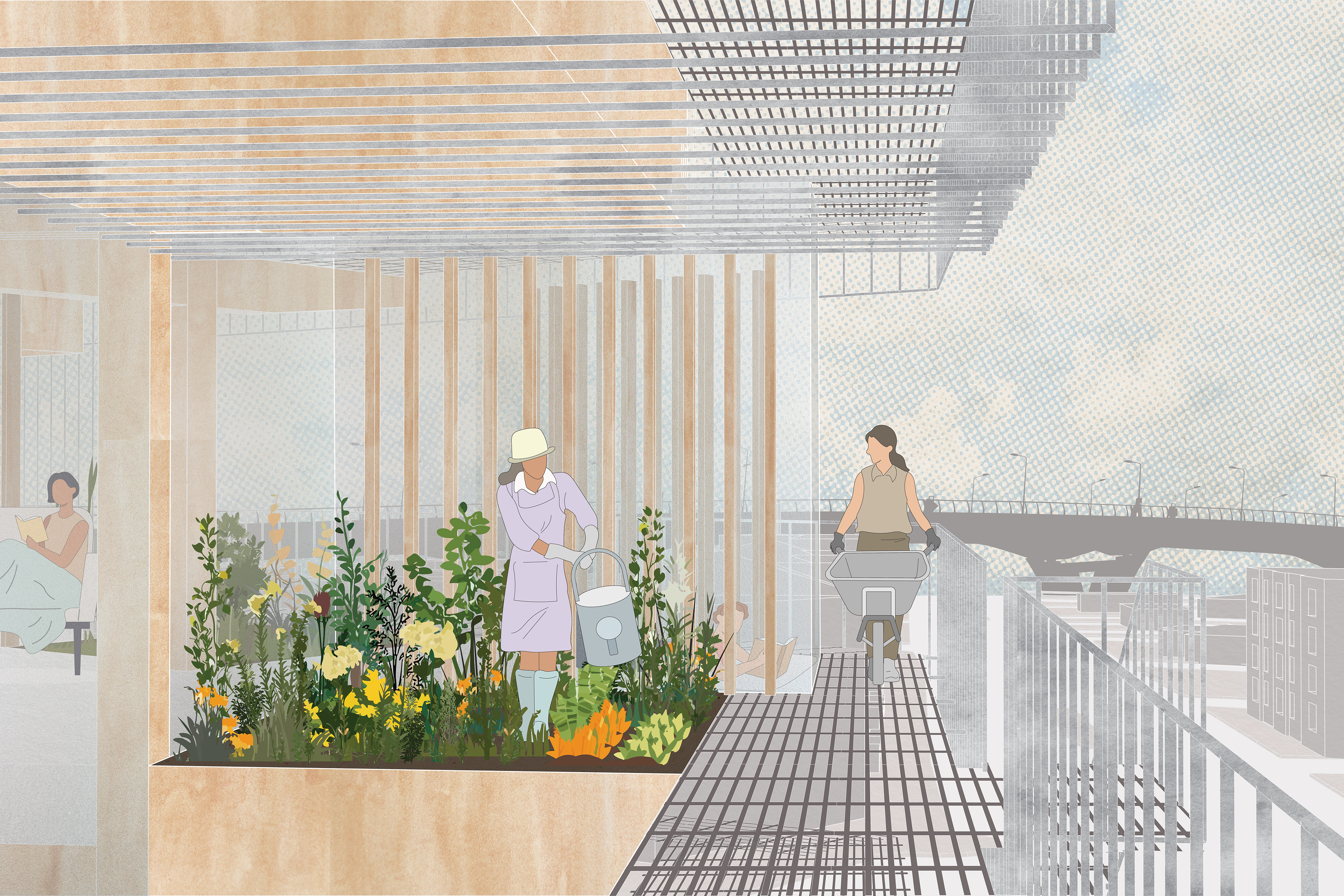
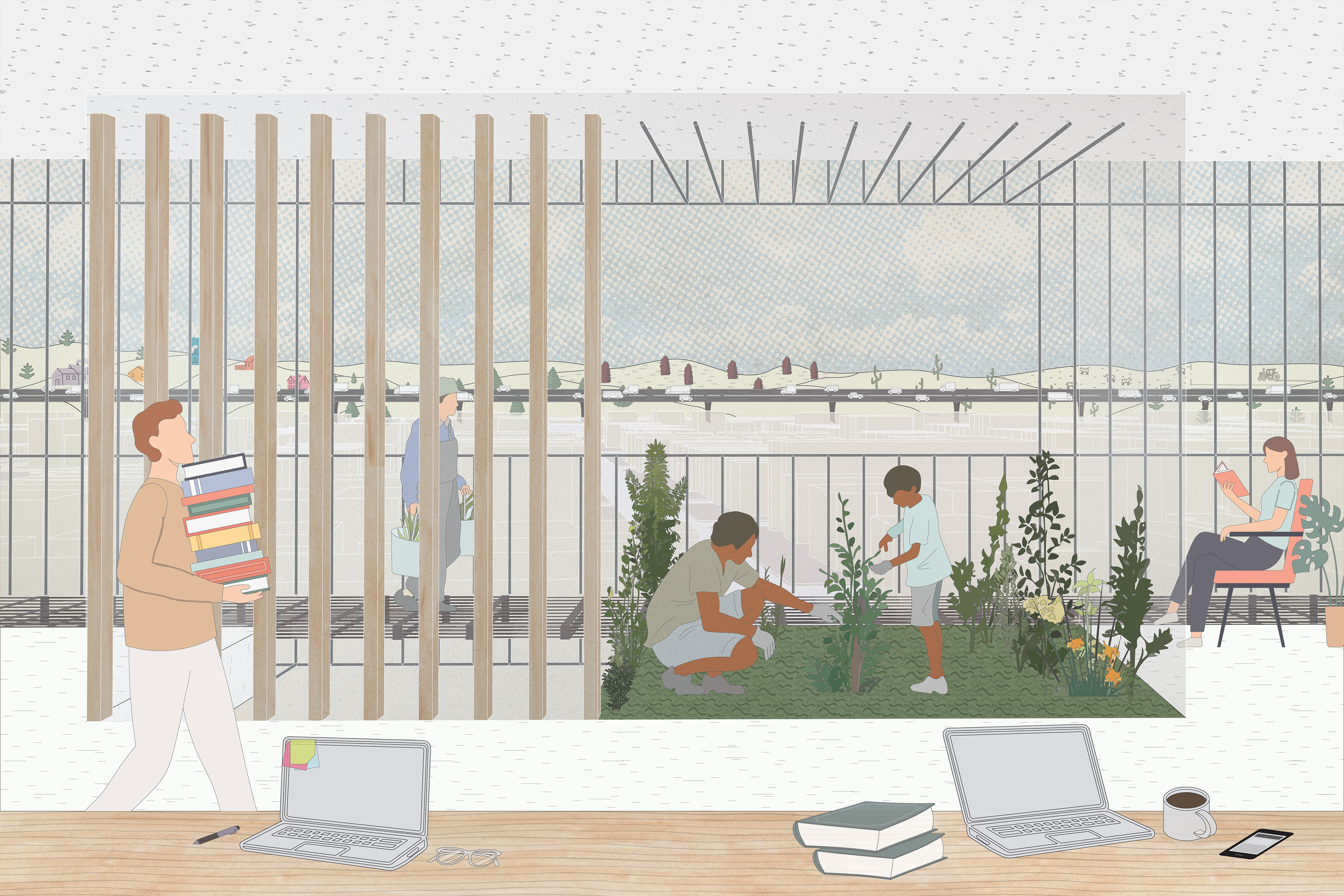
The library itself encompasses a series of protruding programmatic shelves extruding from a central library core, where atop these elements sit allotment gardens, symbolizing the fusion of knowledge and information as a foundation for community growth. Within the interior, floor cutouts and double-triple height spaces foster a sense of openness and connectivity. Light channels ensure a play of natural illumination to and around these checker-like garden spaces. To further support continuity between floors, winding ornamental stairs not only serve as functional components, but also provide a series of views to the surrounding neighborhood. Lastly, the inclusion of exterior catwalks, stairs, and a “dirty” elevator facilitates easy 24-hour access, inviting patrons to explore and use their allotment garden at their convenience.
Going beyond book storage, the ground floor is transformed into a vibrant community hub. It houses a storage/tool library, offering tool rentals and plant deliveries. In addition, a food market within the café creates a nexus for community-grown produce, fostering social interactions and collective growth, weaving together the diverse threads of Oakland’s identity.
Problematizing difficult problems about reparations for residents, Sow and Grow Commons takes a stance of needs for collective reparations; emphasizing that while information & knowledge are forms of power, land is also a form of power. This library radicalizes what we think of as land back movements, challenging conventional paradigms and spotlighting the necessity for broader societal change.
Although Sow and Grow Commons challenges conventional library notions, it is crucial to acknowledge that the production of 25 allotment gardens alone will not resolve food scarcity in the Hoover-Foster neighborhood. This reality prompts a deeper question - how can we address broader societal issues beyond immediate solutions? Disrupting traditional library paradigms, the project embodies education, sustainability and community engagement. It stands as a testament to a space that transcends physicality, nurturing West-Oakland’s intellectual and social fabric, provoking conversation about complex realities and alternative approaches.

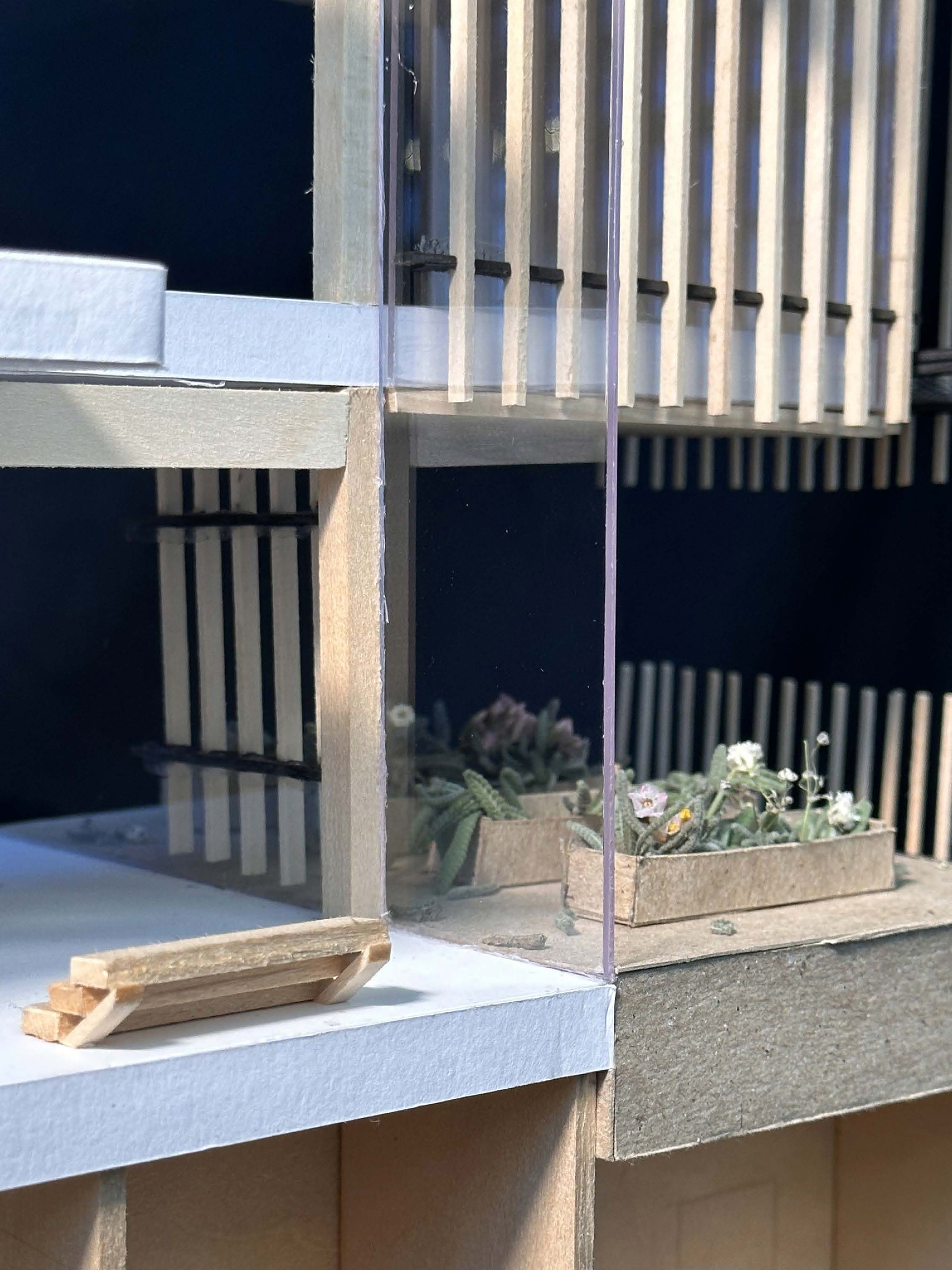

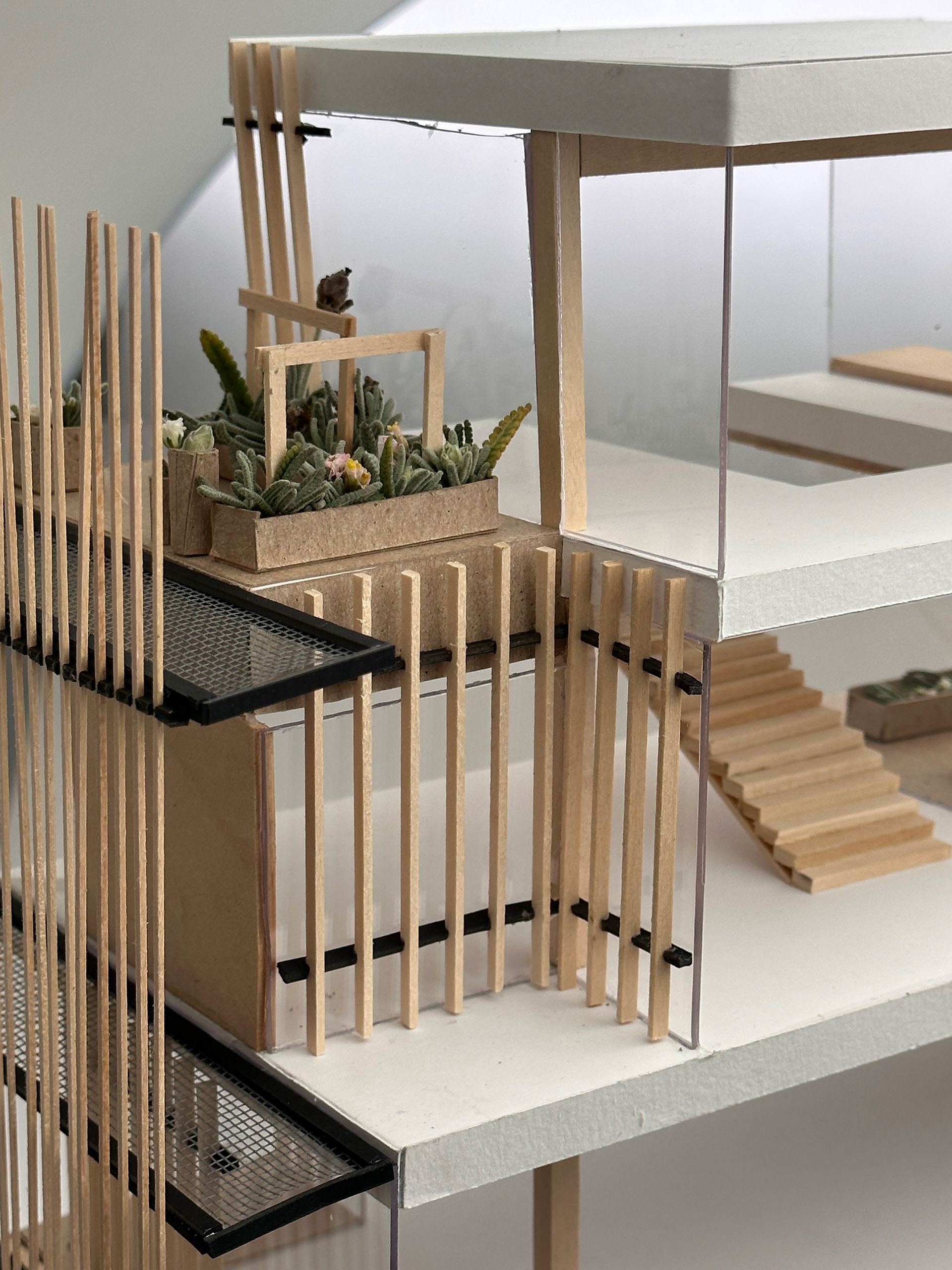
Programs Used
SketchUp | Illustrator | Photoshop